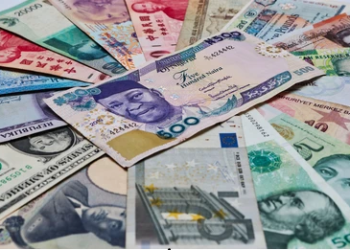Nigeria’s foreign exchange reserves have been caught in a downward spiral, raising alarm bells among economists and policymakers. The Central Bank of Nigeria (CBN) recently revealed that the country’s FX reserves have dwindled by a staggering $1.8 billion in just 10 weeks, underscoring the urgency of addressing underlying issues.
Factors Driving the Decline
Debt Repayment: The apex bank has been diligently servicing foreign debts using the external reserves. Figures indicate a gradual reduction from $560 million in January 2024 to $276.16 million in March 2024. While debt repayment is essential, it has put strain on the reserves.
Oil Export Woes: Nigeria’s economy heavily relies on oil exports, accounting for over 90% of its foreign exchange earnings. Unfortunately, a significant drop in oil exports has directly impacted the country’s reserves. The volatility in global oil prices exacerbates this challenge.
Foreign Investment Drought: Reduced foreign investment inflows have further weakened the reserves. Investors’ confidence wavers due to economic uncertainties and policy inconsistencies.
Import Surge: The surge in imports—ranging from consumer goods to capital equipment—has added pressure to Nigeria’s FX reserves. As the economy grows, so does the demand for imports, straining the available foreign currency.
Naira’s Struggle Against the Dollar
Despite a substantial influx of dollars—approximately $4.60 billion—in the official foreign exchange market during May, the Nigerian naira has weakened significantly. The month concluded with the naira losing 5.60% against the dollar, quoted at N1,485.99 compared to N1,402.67 at the beginning of the month. The dollar’s closing rate stood at N1,470, weaker than the initial N1,380.
The naira’s performance reflects ongoing challenges in maintaining its value amidst fluctuating forex turnover and investor sentiment. Since the start of 2024, the naira has lost over 100% of its value against the US dollar, making it one of Africa’s worst-performing currencies.
Insights from CBN Governor Olayemi Cardoso
CBN Governor Olayemi Cardoso addressed the decline, emphasizing that such shifts are common in countries where debts mature, necessitating timely payments. He assured that the reserves would rebound as other inflows contribute to replenishing them. However, concerns linger about Nigeria’s ability to meet foreign debt obligations and finance essential imports.
Nigeria’s FX reserves serve as a critical gauge of the country’s economic health. Policymakers face the delicate task of balancing debt management, export diversification, and investor confidence to safeguard financial stability. The CBN continues to intervene in the foreign exchange market, but the challenges persist.
As Nigeria navigates these economic headwinds, vigilance and strategic measures are crucial to stabilize the naira and bolster investor trust.
Nigeria’s foreign exchange reserves have been caught in a downward spiral, raising alarm bells among economists and policymakers. The Central Bank of Nigeria (CBN) recently revealed that the country’s FX reserves have dwindled by a staggering $1.8 billion in just 10 weeks, underscoring the urgency of addressing underlying issues.
Factors Driving the Decline
Debt Repayment: The apex bank has been diligently servicing foreign debts using the external reserves. Figures indicate a gradual reduction from $560 million in January 2024 to $276.16 million in March 2024. While debt repayment is essential, it has put strain on the reserves.
Oil Export Woes: Nigeria’s economy heavily relies on oil exports, accounting for over 90% of its foreign exchange earnings. Unfortunately, a significant drop in oil exports has directly impacted the country’s reserves. The volatility in global oil prices exacerbates this challenge.
Foreign Investment Drought: Reduced foreign investment inflows have further weakened the reserves. Investors’ confidence wavers due to economic uncertainties and policy inconsistencies.
Import Surge: The surge in imports—ranging from consumer goods to capital equipment—has added pressure to Nigeria’s FX reserves. As the economy grows, so does the demand for imports, straining the available foreign currency.
Naira’s Struggle Against the Dollar
Despite a substantial influx of dollars—approximately $4.60 billion—in the official foreign exchange market during May, the Nigerian naira has weakened significantly. The month concluded with the naira losing 5.60% against the dollar, quoted at N1,485.99 compared to N1,402.67 at the beginning of the month. The dollar’s closing rate stood at N1,470, weaker than the initial N1,380.
The naira’s performance reflects ongoing challenges in maintaining its value amidst fluctuating forex turnover and investor sentiment. Since the start of 2024, the naira has lost over 100% of its value against the US dollar, making it one of Africa’s worst-performing currencies.
Insights from CBN Governor Olayemi Cardoso
CBN Governor Olayemi Cardoso addressed the decline, emphasizing that such shifts are common in countries where debts mature, necessitating timely payments. He assured that the reserves would rebound as other inflows contribute to replenishing them. However, concerns linger about Nigeria’s ability to meet foreign debt obligations and finance essential imports.
Nigeria’s FX reserves serve as a critical gauge of the country’s economic health. Policymakers face the delicate task of balancing debt management, export diversification, and investor confidence to safeguard financial stability. The CBN continues to intervene in the foreign exchange market, but the challenges persist.
As Nigeria navigates these economic headwinds, vigilance and strategic measures are crucial to stabilize the naira and bolster investor trust.










